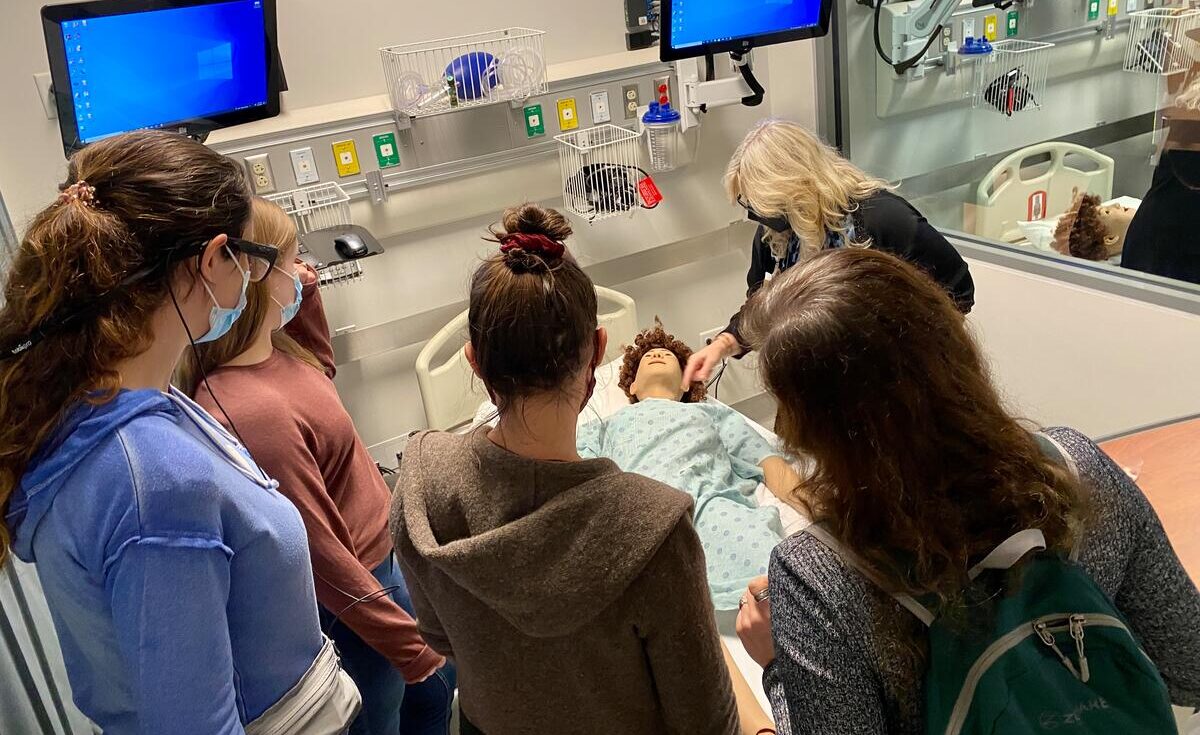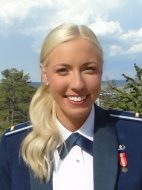MOMENTS: Using rich analytics and AI to support reflection and learning during simulation training.

One of the best ways of helping students learn is to have them experience realistic simulations of the situations they will confront in practice. Simulation learning is particularly important in medical settings where students can practice skills without risking patient safety. However, one of the consistent challenges in simulation learning is to ensure that students can effectively review and learn from experiences that are compelling, but also can be overwhelming. In this project, a multidisciplinary research team will implement technologies that record rich, detailed information about the events that occur during nursing simulations, and that support reflection-based learning by allowing students and simulation instructors to review and elaborate upon simulations events. This project aims both to develop technological supports for simulation training that improve learning by helping students reflect on their experiences, and that can be used as the basis for AI-based scaling of complex simulation training that can increase the accessibility of these intensive experiences.
In this project, we are developing a cognitively grounded system of nursing simulation training supports called MOMENTS (MultimOdal Metacognitive EveNt-based Training for Self-regulation). MOMENTS has several key components. First is Debrief, a module to support same-day learning. Debrief includes a smartphone app that allows both instructors and observing students to mark key moments that happen during enactment of the hospital room scenarios. The app can compute advanced analytics during simulations and make this information available to students and instructors in support of post-simulation debriefing sessions.
Second, we are developing an intensive post-simulation review module called Reflect that can be completed within several weeks of the simulation experience. Reflect induces crucial long-term reactivation of simulation learning experiences and intensive reflection by requiring students to segment their simulation into meaningful events and identify key actions, goals, and cognitive states during each event. This guided reflection is grounded in evidence-based debriefing practices that are currently used in nursing education, but it also leverages multimodal learning analytics to personalize and empower students’ reflection experiences. Finally, our system will be integrated with an AI analytics module to analyze and eventually automate detection of key moments during simulations, and with a multimodal analytics storage and access system that can be operated with a series of data dashboards.
How to Get Involved:
MOMENTS PI
MOMENTS Personnel
Core Publications
Lee, M.J., & Levin, D.T. (in press). Temporal flexibility in event perception: A cognitive temporal window supports flexible integration of multimodal events. Journal of Experimental Psychology: General.
Vatral, C., Biswas, G., Cohn, C., Lee, M.J., Davalos, E., Levin, D.T., Hall, E., Holt, J. (2023). A Tale of Two Nurses: Studying Groupwork in Nurse Training by Analyzing Taskwork Roles, Social Interactions, and Self-Efficacy. International Conference on Computer-Supported Collaborative Learning.
Davalos, E., Vatral, C., Cohn, C., Fonteles, J., Biswas, G., Mohammad, N., Lee, M., & Levin, D.T. (2023). Identifying Gaze Behavior Evolution via Temporal Fully-Weighted Scanpath Graphs. 13th International Learning Analytics and Knowledge Conference.
Funding Sources











